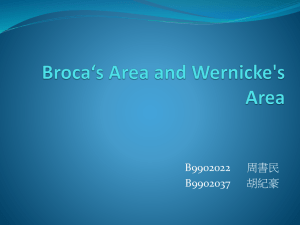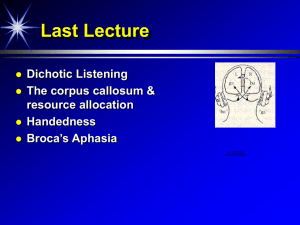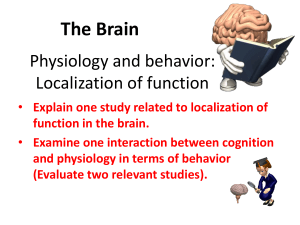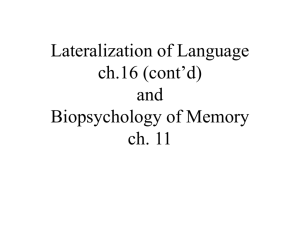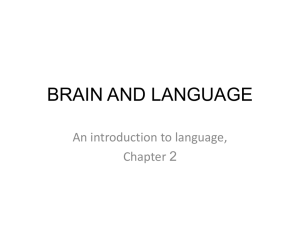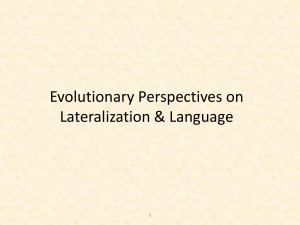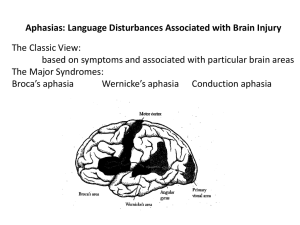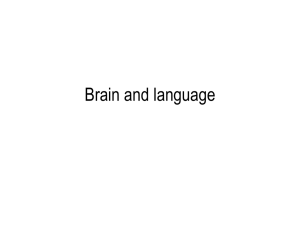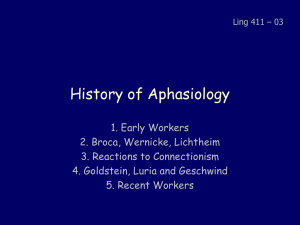Carl Wernicke's Aphasia: A Case Study Presentation
advertisement
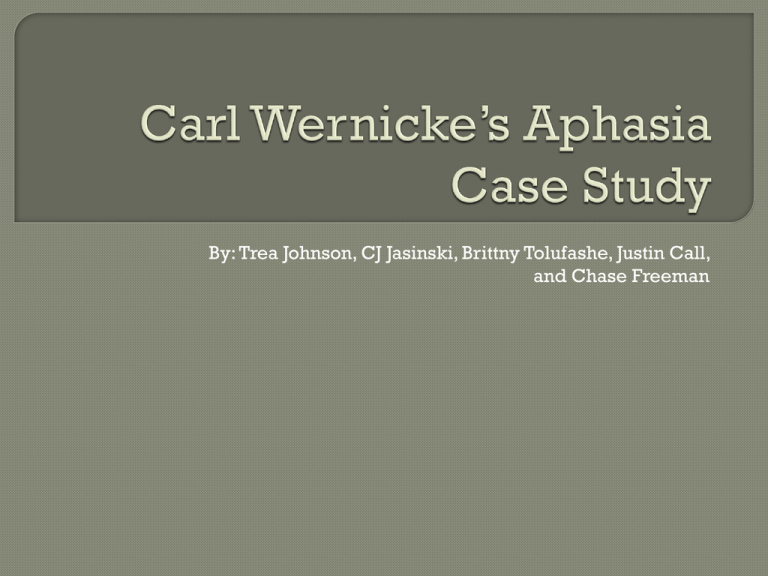
By: Trea Johnson, CJ Jasinski, Brittny Tolufashe, Justin Call, and Chase Freeman Carl Wernicke (1848-1905 was one of the leading apshiasiologist of his day. Aphasiologist – a specialist who deals with speech disorders caused by dysfunction of the language areas of the brain. In 1873, Carl Wernicke studied a patient that had suffered a stroke. The patient had trouble with speech. After investigation, Wernicke discovered that the patient had a lesion in the temporal region. More specifically, the parietal, temporal, and occipital lobes. After seeing that the patient had damage in the left temporal region. And also struggle with speech. He hypothesized that the region controlled speech processing. Wernicke’s area is located on the temporal lobe of the left brain. It is responsible for: 1. Language comprehension 2. Semantic processing 3. Language Recognition 4. Language Interpretation “A psychological Study on an Anatomical Basis” • P. Broca had described a frontal center and added speech comprehension • An impairment gave rise to sensory aphasia opposed to motor aphasia • Conduction aphasia, would result from an interruption of the fibers. Code, C., Wallesch, C., Joanette, Y., & Lecours, A. R. (1996). Classic cases in neuropsychology. (p. 385). New York, NY: Psychology Press. Alic, Margaret. "Wernicke, Carl." Gale Encyclopedia of Psychology. 2001. Retrieved September 06, 2013 from Encyclopedia.com: http://www.encyclopedia.com/doc/1G2-3406000659.html Carl Wernicke. (2011, August 12). Carl Wernicke. Retrieved September 06, 2013, from http://www.slideshare.net/guest62e6b6/carl-wernicke2287060 Rogers, C. (2007, July). Describes Wernicke's aphasia, Describes Wernicke's encephalopathy. Retrieved September 6, 2013, from http://psychology.jrank.org/pages/652/Carl-Wernicke.html
![Wernicke`s_area_presentation[1] (Cipryana Mack)](http://s2.studylib.net/store/data/005312943_1-7f44a63b1f3c5107424c89eb65857143-300x300.png)
